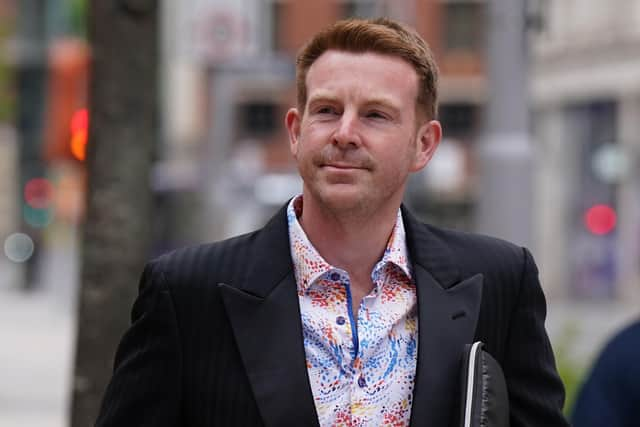Alex Belfield and Molly Russell cases show moral vacuum at heart of social media - Andrew Vine
In both these cases, social media was used to target people with material that was disturbing or calculatedly abusive and harassing. In the first, it prompted
Molly Russell, 14, to take her own life. In the second, it left one victim suicidal and another fearing for his family’s safety.
Advertisement
Hide AdAdvertisement
Hide AdAnd in both, social media giants including Twitter and YouTube have effectively shrugged their shoulders and said, “Nothing to do with us,” then carried on making vast profits from content that any rational and responsible person would find utterly abhorrent.


This has to end. What should be a means of connecting people with the best of intentions has been perverted into something infinitely darker that endangers people’s lives whilst the companies operating it evade responsibility.
It is an evil that has crept up on society and wrong-footed lawmakers who have struggled to tackle it.
And it has been made all the worse by a moral vacuum at the heart of social media that has seen its major players sidestep accountability by proclaiming the fiction they are not publishers of distressing and harmful material, but simply operators of platforms that allow others to publish.
Advertisement
Hide AdAdvertisement
Hide AdHopefully, the Government’s Online Safety Bill, currently making its way through Parliament will prove to be a long-overdue measure that cracks down on the worst of what is out there on social media.
Its proposals to require platforms to take down harmful material – especially aimed at the young and impressionable – are welcome, as are fines for those who fail to comply.
But that is only half the battle. The measures will rely on material being identified and reported, which takes time – and the especially distressing story of Molly, from London, shows that it can have the most tragic consequences with frightening suddenness.
Molly was bombarded with material about self-harm and suicide in the days and weeks before she took her own life in 2017. It was, in the words of her father, Ian, “the bleakest of worlds” into which she had strayed and then became trapped.
Advertisement
Hide AdAdvertisement
Hide AdIt has taken Mr Russell five years of campaigning to get an inquest to investigate the algorithms that kept this relentless stream of horrors before Molly’s eyes every time she opened Instagram, Facebook and Pinterest.
What legislation cannot do is make the social media giants develop a conscience and a sense of both decency and social responsibility.
That they lack such values is illustrated by what has happened in the wake of the jailing of Alex Belfield, a former BBC Leeds presenter imprisoned earlier this month after being convicted of stalking a series of people, including former colleagues, online.
The judge told him that one of his victims had been seconds from suicide because of the harassment he had suffered.
Advertisement
Hide AdAdvertisement
Hide AdBelfield was sentenced to five-and-a-half years, half of which will be served in prison and the remainder on licence.
Yet despite him being in jail, the YouTube channel which he used as a vehicle to abuse people is still online. Specific videos related to individual victims have been removed, but dozens remain in which Belfield harangues and rants.
There is even a video – presumably recorded before he was imprisoned – promising that Belfield will be back, which was posted after his jailing.
How can YouTube possibly justify allowing this archive of a convicted stalker jailed because of the seriousness of his criminality to remain online?
Advertisement
Hide AdAdvertisement
Hide AdIt offends natural justice, and is a source of immense frustration to those Belfield tormented, including broadcaster Jeremy Vine – no relation to me – who last week accused social media giants of lacking any moral compass.
He also spoke of how difficult and protracted the process of getting offensive videos taken offline has been, even when he involved lawyers.
In Mr Vine’s case, the stalking left him fearing for the safety of his teenage daughters, especially because Belfield’s YouTube channel has 357,000 subscribers who appeared to revel in the hatred being preached, judging from the comments left on the videos. Mr Vine feared one of them might turn into an attacker.
It is worrying in itself that there are so many people out there either so gullible, or so malicious, that they would want to follow an online personality of this sort.
Advertisement
Hide AdAdvertisement
Hide AdThe fact that this channel remains available is an indictment of the rottenness at the core of so much social media. Mealy-mouthed bleatings by YouTube that the remaining content on Belfield’s channel does not breach its guidelines negates any claim it may make to be a reputable and responsible company.
What a cesspit some of these companies have created. Thankfully, they will soon face tighter rules. But getting them to behave decently is obviously going to prove far more difficult.